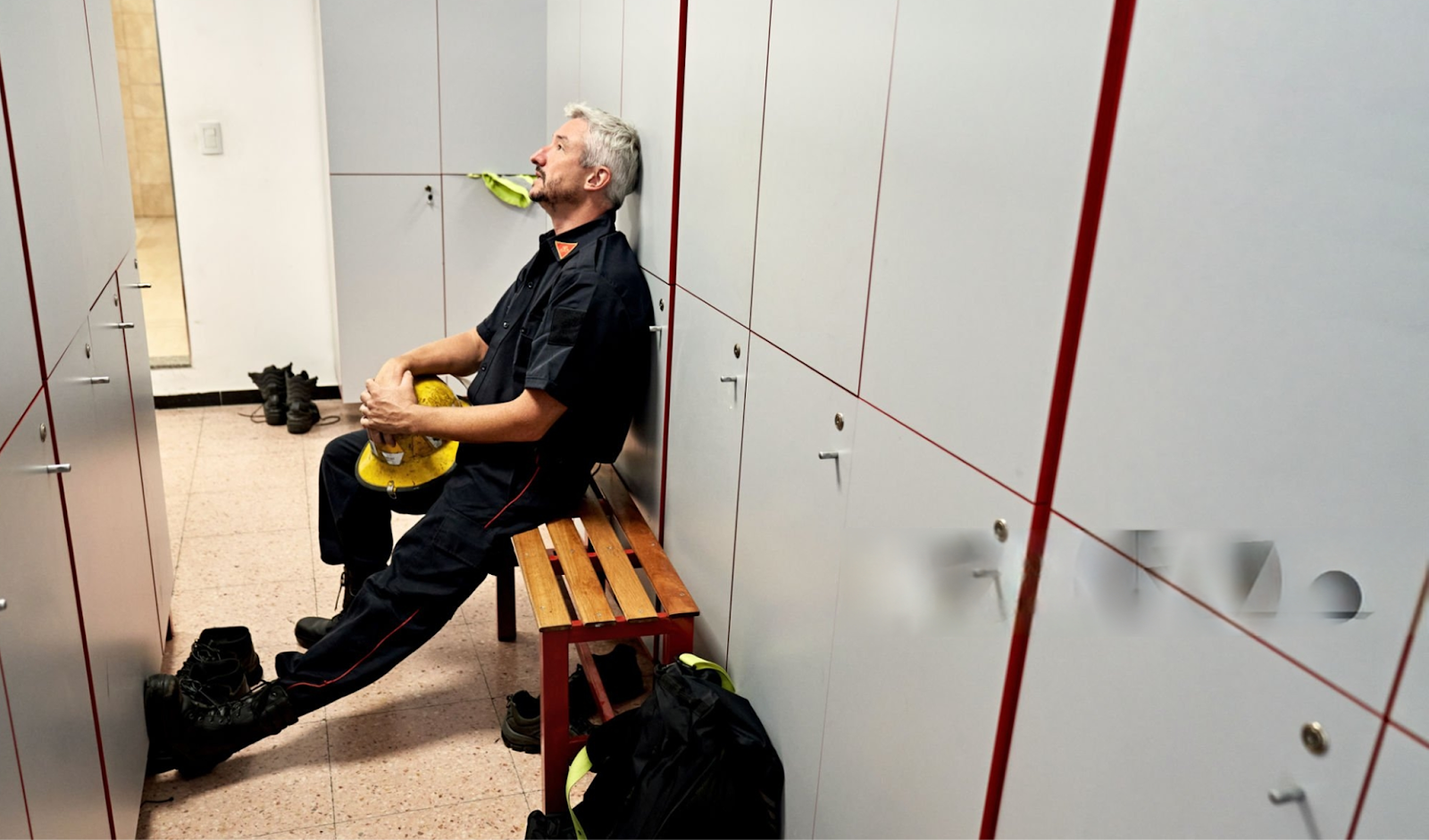I've always seen first responders as unsung heroes and very special people because, when everyone else is running away from danger, they run into it.

This quote emphasizes the extraordinary selflessness and bravery of the first responders who risk their lives to protect others.
Yet, behind their dedication lies a silent, often overlooked struggle. These individuals and physical safety, experience secondary trauma —a psychological phenomenon that arises from being exposed to the suffering and traumatic experiences of others. Over time, this can manifest as emotional exhaustion, anxiety, or even post-traumatic stress disorder (PTSD). Combined with the daily reality of life-threatening situations, the mental toll can be overwhelming. This blog sheds light on these challenges and explores how we can better support them
Research indicates that first responders undergo mental health challenges at comparatively higher rates than the general public. Studies suggest that around 32% first responders experience Post Traumatic Stress Disorder (PTSD) and depression (Substance Abuse and Mental Health Services Administration, 2018).They are are 50% more likely to die from suicide as compared to general population and 69% of the emergency workers go through burnout (Smith & Thompson, 2020). These statistics indicate that there are multiple contributing factors to these mental health challenges. Let us briefly discuss a few primary challenges.

Repeated exposure to traumatic events as part of their daily duties is the biggest challenge faced by first responders. This continuous exposure to trauma can lead to symptoms like flashbacks, hypervigilance, difficulty sleeping, trouble concentrating, and nightmares. Research published in the Journal of Occupational Health Psychology indicates that up to 32% of first responders suffer from PTSD (Bryant, 2019). If left unmanaged, it may lead to depression, suicidal thoughts and substance abuse.
The effects of PTSD extend beyond the workplace, impacting the personal lives of first responders. Their relationships with family and friends can suffer due to irritability, emotional detachment, or difficulty expressing feelings. The stigma surrounding mental health in high-stress professions worsens this, discouraging many from seeking help for fear of appearing weak or harming their careers. Addressing this stigma and creating a supportive environment is crucial. With timely intervention and access to resources, the lasting impacts of PTSD can be mitigated, allowing first responders to regain their mental well-being without fear (Corrigan et al., 2018).
Experiencing life death situations in real life day after day is just mental load after load on the first responders. Whether pulling someone out of a fire, or helping someone at a serious accident, these incidents just don't vanish once the shift ends. Continuous exposure to such incidents combined with emergency response work and irregular schedules not only lead to burnout but also chronic stress, anxiety and depression.
Studies reveal that around 24% of first responders report symptoms of depression, compared to 7% in the general population (Greenhaus & Allen, 2020).
Another challenge faced by first responders is the inability to stop that fight and flight body response. The brain is constantly on high alert, ready for the next emergency, making it extremely hard to relax even with their family. Therefore, many first responders resort to substance abuse as a coping mechanism. Research suggests that up to 29% first responders experience substance abuse as compared to 12.7% in general masses (Jones & Cooper, 2021).
Sleepless nights are already a bane. For first responders sleep is not a usual thing; it is more of a luxury. Between day/night shifts and late night emergency calls, getting good rest becomes nearly impossible. We all know how cranky one feels after a bad night’s sleep. Imagine what happens after several sleepless nights in a row. Disturbed sleep not only affects physically, but also impairs cognitive functioning (Smith & Thompson, 2020).
One of the biggest challenges regarding first responders is the inability to seek help and pretend to be a tough cookie because of the stigma attached to seeking help. This culture of not showing vulnerabilities and always acting brave and resilient leads to feelings of isolation further making it impossible to share your actual feelings with others eventually leading to burnout, stress, PTSD and more (Corrigan et al., 2018).
Supporting the mental health and overall wellbeing of a first responder is not an option but a priority. Mental health issues cannot resolve on their own. Professional help
becomes pivotal for the resolution and management of such challenges. If the team members of an organization are taken care of, it will automatically increase their efficacy and eventually help the business.
MyOmnia Wellness Screener and Peer Support Programs makes it simple by providing:
First responders are there for others 24/7. Isn't it time we were there for them too?
Want to make a real difference for your team?
[Discover how MyOmnia addresses key challenges for first responders. Read now!]